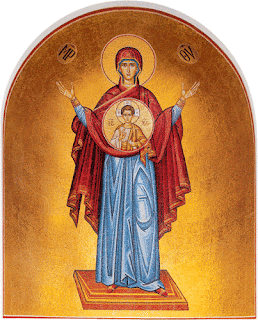
Over at First Things last Tuesday, the Most Reverend Charles J. Chaput, Archbishop of Denver, wrote an article titled, "Thoughts on 'Roman Catholics for Obama '08.' " It was written in response to a group of Catholics that use parts of another one of his articles to justify voting for Senator Obama in spite of his being pro-choice. His Excellency makes it clear that Roman Catholics for Obama (RCO) has not quoted him fully and makes the case for extreme caution before voting for a pro-choice politician. His Excellency is not willing to do so. (I would encourage you to read the article.)
And so, fuel to the fire, there has been much sound and fury in the blogs among fundamentalist and conservative Catholics.
But before I go on, let me provide some brief background information about Catholics and Catholicism. First, there are what I would consider fundamentalists in Catholicism. These are the same kind of fundamentalists that you know in whatever religion or Christian denomination you may move in. I'm not speaking here of Christians who adhere to the fundamentals of their faith - the denotative understanding of the term, as has been formerly understood in Protestant Christianity. These Catholics and Christians are conservative, but that isn't their distinguishing feature. What distinguishes them is that they bandy fear about as a bludgeon. And while it is effective, it is not Christian (that is not to say that they are not Christians). It lacks mercy.
So these fundamentalists pick up Archbishop Chaput's essay and they roll it tightly into a club. They call Obama supporters soft-brained, and some even relegate his supporters to hell. They compare the senator with Moloch. Who, if you remember, was offered babies in sacrifice by throwing them into a fire - thousands of babies.
Now, quickly, I want to say that I am not questioning whether any of these people are Christian or Catholic. I'm not equipped to make that judgment; I don't have the authority to make that determination; it's not my job. And I believe they're good-hearted and well-intentioned. And their vitriol rises up out of their love for children. These are people just like you and me, they too need to be examining their lives to see if they are in the faith, working out their salvation in fear and trembling, uniting themselves to Christ, converting evermore to him each day.
Let me also be clear in saying that Archbishop Chaput, from what I have read of and about him is no fundamentalist. He gives his reasons for voting pro-life. And having a strong opinion on a matter is not the same as judging everyone who disagrees with that opinion. His Excellency believes that there is no moral issue (where there is disagreement in our parties, I imagine worldwide poverty is not under consideration) that outweighs the issue of abortion. And I agree with him. He makes an excellent argument. But I disagree with him here, in that I don't believe it's simply a weighing match. The archbishop says that the Democratic party has not gotten better on the issue of life and therefore he can't vote for such a candidate in good faith. That is all well and good. However, while the Republican party talks a good talk concerning the abortion issue, they have had nearly 30 years of mostly Republican power, and one begins to wonder whether talk is all the Republican party has.
I am sure about one thing as it concerns abortion and politics: My vote for a pro-life Republican president will not diminish the number of abortions in our country in the next four years or the next 40. I believe this to be true based on the past 35 years. I don't believe it anymore than I believe Obama's election would diminish racism or that Hillary's would diminish sexism - perhaps all three nominee's elections could be wonderful symbols, but only in the modern sense of symbols, lacking any substance. These are the kinds of symbols that effect nothing other than making us feel good about ourselves.
Let me say that I am resolutely pro-life. I do not believe abortion is an issue of women's rights but an issue that concerns the dignity and sanctity of life itself. I find the whole mess abominable. And I reject it as firmly as I can along with the Catholic Church and most of Christianity. But that does not mean that I cannot vote for a pro-choice politician because of other moral considerations. Not because they are pro-choice, that would be grave error, but in spite of their being pro-choice. And I can do so in good conscience because, frankly, the Republican party has dropped the ball - if it ever was in play.
I have not, by the way, decided to vote for Senator Obama in November. It may seem so, but that would be a mistaken impression. There is a lot of time between now and then and there needs to be a lot of prayer and consideration. I struggle with this issue constantly. And if you are wondering whether to choose between my wisdom and the archbishop's, I would strongly urge you to follow his Excellency. He is older and has more experience with this issue. And he knows Christ better than I.
We must pray for our parties' nominees - for wisdom, which begins with the fear of God, and for love of all people.
(Let me make a distinction, after all is said and done. It is one thing to vote for a politician in spite of his or her being pro-choice. It is another thing to be a politician and to cast votes against life. These are two very different things, and if you'd like to have that conversation, I would be glad to take it up in the combox.)













